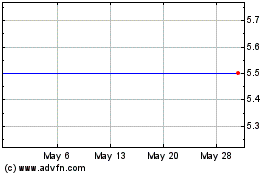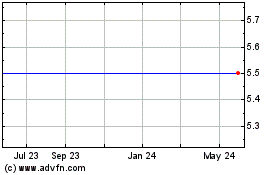Research Finds Major Disparity Between Tax and Finance Functions
November 07 2006 - 8:00AM
PR Newswire (US)
NEW YORK, Nov. 7 /PRNewswire-FirstCall/ -- Despite the current
environment of increased scrutiny of corporate finances, there
appears to be a gap between companies' tax and finance functions.
This is according to "Building a More Effective Tax Function," a
report prepared by CFO Research Services in collaboration with
Hudson Financial Solutions. Generally, the study found large gaps
between tax professionals' and finance professionals' perceptions
of how the tax function performed, what the group's priorities are,
the barriers it faced in aligning with other parts of the company
and how it has been impacted by broad regulatory and business
developments. For example, when tax respondents were asked about
the effect of the Sarbanes-Oxley legislation on their day-to-day
activities, more than half said it had a great impact. However,
nearly half of finance respondents said that Sarbanes-Oxley had
little to no impact on the tax function within their company.
Further, the study also found that a resounding 84 percent of
respondents agreed that tax compliance activities take up a
majority of the tax function's time, as opposed to only 16 percent
who believed most resources are devoted to tax planning.
Additionally, the tax function received significantly higher marks
at executing routine compliances activities, but only mediocre
scores when asked to work as a structured business partner. The
weakest ratings came when tax was forced to perform as an ad hoc,
unstructured business partner. "External business forces and
regulatory changes are pressing the tax function to stretch beyond
the traditional role into a presence throughout the entire
organization. Tax must become more engaged in other business areas,
particularly involved at the front-end of business and financial
decisions," said Andrea Gronenthal, National Director, Tax Risk,
Hudson Financial Solutions. "This paradigm shift makes tax's
alignment with the finance function even more critical. Closer
integration of the two will not only benefit both tax and finance,
but the overall organization will see positive results." In order
for better alignment to occur between the tax and finance
functions, there are a number of steps that need to be taken, but
it must start at the top, according to Gronenthal. The CFO must
appreciate the challenges faced by tax and work to change how it is
perceived within the overall department. Plus, management must
create channels for effective communication between all parts of
the organization. However, it is also the responsibility of tax
executives to take the initiative to involve tax in all business
units and truly step into a leadership role that positions tax as a
strategic business partner. Additional survey findings include: *
While 53 percent of tax respondents stated that time, budget or
resource constraints highly impacted their day-to-day activities,
only 28 percent of their non-tax financial counterparts thought
these issues had a high impact on the tax function. * When it comes
to daily activities, 81 percent of tax executives say that
preventing public restatement of earnings projections and/or
financial statements is a high priority. Their colleagues in
finance, however, underestimate the urgency with which tax is
pursuing its agenda, as only 48 percent of these individuals
thought tax executives saw this as a high priority. * Seventy-four
percent of the tax respondents said that improving processes for
income tax accounting and for tax contingencies was a high priority
improvement initiative for the next two years. However, only 26
percent of non-tax respondents thought this was a high priority
initiative for the tax function. To learn more about the
misalignment between the tax and finance functions within
companies, the likely challenges resulting from that division, and
how organizations can better manage these challenges, please
download the full report from http://www.us.hudson.com/finance.
About the Report Building a More Effective Tax Function is
published by CFO Publishing Corp. CFO Research Services and Hudson
Financial Solutions jointly developed the hypotheses for this
research. Hudson funded the research and the publication of the
findings. CFO Research surveyed 336 senior finance and tax
executives at North American companies. Respondents came from a
broad cross section of the U.S. economy. In addition, CFO Research
conducted a series of interviews with senior finance and tax
executives at 10 companies. About CFO Research Services CFO
Research Services is the sponsored research group within CFO
Publishing Corporation, which produces CFO Magazine in the United
States, Europe, Asia, and China. CFO Publishing is part of The
Economist Group. About Hudson Hudson (NASDAQ:HHGP) is a leading
provider of permanent recruitment, contract professionals and
talent management services worldwide. From single placements to
total outsourced solutions, Hudson helps clients achieve greater
organizational performance by assessing, recruiting, developing and
engaging the best and brightest people for their businesses. The
company employs more than 3,600 professionals serving clients and
candidates in more than 20 countries. More information is available
at http://www.hudson.com/ DATASOURCE: Hudson CONTACT: Sarah
Kafenstok of Hudson, +1-312-795-4202, Web site:
http://www.hudson.com/ http://www.us.hudson.com/finance
Copyright
Hudson Highland (NASDAQ:HHGP)
Historical Stock Chart
From Jun 2024 to Jul 2024

Hudson Highland (NASDAQ:HHGP)
Historical Stock Chart
From Jul 2023 to Jul 2024
